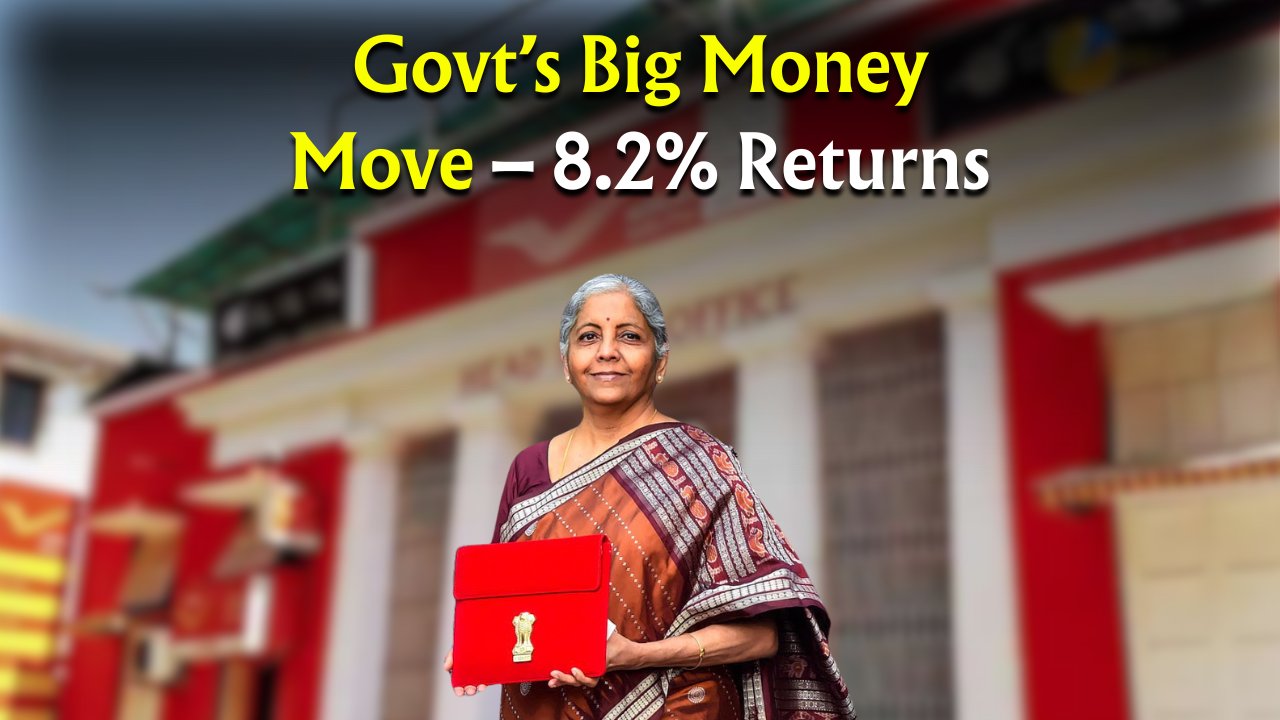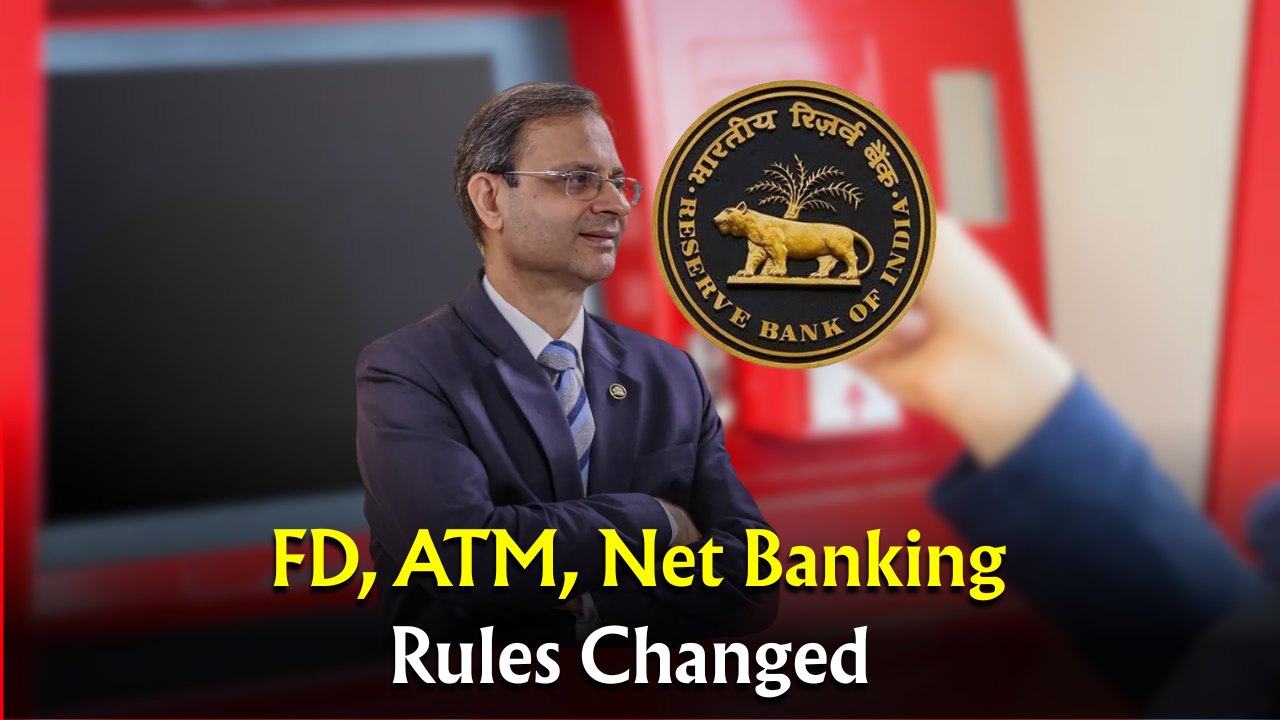Bank Rules : Taking a personal loan is one of the easiest ways to meet urgent financial needs—be it for medical expenses, education, weddings, or debt consolidation. However, what many borrowers overlook is the consequence of defaulting on repayment. If you fail to repay your personal loan on time, it can trigger a series of legal, financial, and emotional repercussions. This article explores what happens if you don’t repay a personal loan, what the RBI and banks say about it, and how to avoid falling into a debt trap.
Bank Rules : Understanding Personal Loan Repayment Terms
Before discussing the consequences of default, it’s important to understand how personal loan repayment works:
- Personal loans are unsecured, meaning there is no collateral.
- They typically carry higher interest rates due to the increased risk for banks.
- Loan tenures range from 12 months to 60 months, depending on the bank and borrower’s profile.
- Monthly EMIs (Equated Monthly Installments) must be paid on or before the due date.
If you miss one or more EMIs, you are considered a defaulter, and the bank can take strict action as per the loan agreement.
What Are the Immediate Consequences of Missing a Loan EMI?
Missing even one EMI can lead to multiple issues, some of which may begin immediately:
- Late Payment Fees: Most banks charge a penalty for each missed EMI.
- Credit Score Drop: Even a single default can reduce your CIBIL score by 50–100 points.
- Increased Interest Burden: Banks may charge additional interest on the overdue amount.
- Collection Calls: You may start receiving calls from the bank’s collection department.
Table: Immediate Penalties on Missed EMIs
| Bank Name | Late Payment Charges | Impact on Credit Score | Collection Process Begins |
|---|---|---|---|
| HDFC Bank | 2% per month on overdue EMI | Yes, within 30 days | After 1 EMI miss |
| SBI | ₹500 + GST per default | Yes, report to CIBIL | After 1 EMI miss |
| ICICI Bank | 2% per month on overdue | Yes, significant impact | Within 1–2 missed EMIs |
| Axis Bank | ₹300 + GST or 2% interest | Reported after 30 days | After 1 EMI |
| Kotak Mahindra | ₹750 or 2% monthly | Yes | Begins post-default |
| IDFC First Bank | ₹500 to ₹1,000 | Immediate drop in score | Within 1 EMI |
| Bajaj Finserv | ₹450 to ₹750 + GST | Yes | Within 10–15 days |
What Happens If You Default on a Personal Loan?
When you default on a personal loan (i.e., do not repay EMIs for 90 days or more), you are classified as a Non-Performing Asset (NPA) by banks. The consequences become more severe at this stage:
- Legal Action: Banks may initiate recovery proceedings under the SARFAESI Act or other civil laws.
- Visit by Recovery Agents: Banks may send recovery agents to your home or workplace.
- Account Freezing: If you have savings or fixed deposits with the same bank, those funds may be seized.
- Loan Recall Notice: Banks may ask for full repayment immediately.
Table: Stages of Default and Bank Action
| Duration of Non-Payment | Bank’s Action Taken | Impact on Borrower |
|---|---|---|
| 1–30 days | Reminder calls, late fees | Mild credit score dip |
| 31–60 days | Stronger reminders, charges increase | Credit score drops further |
| 61–90 days | Recovery department involved | Legal notice possible |
| After 90 days | Account marked as NPA, legal action begins | Severe credit damage, recovery agent visits |
| After 180 days | Civil suit or criminal complaint in some cases | Legal summons, risk of attachment |
Legal Rights of Borrowers – What You Should Know
Even if you default, you still have rights as a borrower. Banks must follow RBI’s fair practice codes.
- No Harassment: Recovery agents cannot threaten or humiliate you.
- Right to Notice: You must be served proper legal notice before any action.
- Settlement Option: Banks may offer one-time settlement options if you are genuinely unable to repay.
- Privacy Laws: Your loan details cannot be publicly disclosed by the bank.
What Are the Long-Term Effects of Loan Default?
Defaulting on a personal loan can affect your financial future in more ways than one:
- Loan Rejection in Future: Banks may deny future loans, even if you settle old ones.
- Higher Interest Rates: You may be offered loans only at high-interest rates.
- Employment Issues: Some employers check CIBIL scores before hiring.
- Difficulty in Getting Credit Cards: A low score makes you ineligible for premium cards.
Table: Credit Score Impact of Loan Defaults
| Action Taken by Borrower | Credit Score Impact | Duration of Impact |
|---|---|---|
| 1 missed EMI | 30–50 points drop | 6–12 months |
| Default (over 90 days) | 100–150 points drop | 3–5 years |
| Settled Account (not paid in full) | Negative remark on report | 7 years |
| Legal Action or Write-Off | Significant impact | Over 7 years |
How to Handle Loan Default or EMI Issues?
If you’re unable to pay your loan EMIs due to financial hardship, consider the following actions:
- Talk to Your Bank Early: Explain your situation and request a restructure or moratorium.
- Loan Restructuring: You may be eligible for tenure extension or EMI reduction.
- Debt Consolidation: Combine multiple loans into one with lower EMI.
- Opt for Settlement: As a last resort, negotiate a one-time settlement—this will still affect your CIBIL score but may avoid legal action.
- Credit Counseling: Some NGOs and financial advisors offer help for managing debts.
Tips to Avoid Personal Loan Default
- Always borrow within your repayment capacity.
- Maintain an emergency fund to manage EMIs in tough times.
- Avoid taking multiple personal loans simultaneously.
- Choose auto-debit for timely EMI payments.
- Monitor your credit report regularly.
Defaulting on a personal loan can lead to severe financial and legal consequences—ranging from late fees and credit score damage to lawsuits and recovery agent visits. But all is not lost if you act quickly and communicate with your lender. Banks today offer multiple options like restructuring, settlement, or temporary relief. Understanding your rights and staying proactive can help you avoid long-term trouble. Always borrow responsibly and seek financial advice when in doubt.
The information in this article is intended for educational purposes only and does not constitute legal or financial advice. Always consult with your bank or a certified financial advisor for case-specific guidance.
What are the consequences of not repaying a personal loan according to bank rules?
Not repaying a personal loan can lead to penalties, damaged credit score, collection calls, and even legal action by the lender. It's essential to communicate with your lender if you're facing difficulties in repaying the loan.









